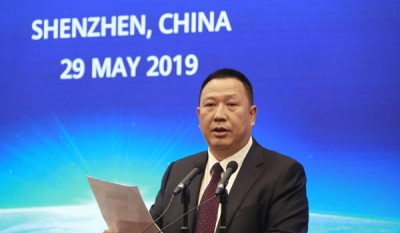“Connectivity is a basic human right, and the US government is putting their rights at risk, especially people in underdeveloped countries, where there is a large digital divide” Dr. Song said adding that it's unfortunate that the US government is using so much time, resources, and political capital to attack a private company.
He went onto say that in the United States, many people in rural areas have been forgotten.
“They still don't have access to affordable broadband networks.
For many years, we have been working closely with rural operators to ensure that all Americans have equal access” He pointed out.
“Politicians in the U.S. are using the strength of an entire nation to come after a private company,” Song noted.
“This is not normal. Almost never seen in history” Dr. Song said.
“We believe this sets a dangerous precedent.
Today it's telecoms and Huawei.
Tomorrow it could be your industry, your company, your consumers” he said.
Huawei’s Chief Legal Officer Dr. Song Liuping made these comments announcing that Huawei on 29th May filed a motion for summary judgment as part of the process to challenge the constitutionality of Section 889 of the 2019 National Defense Authorization Act (2019 NDAA).
It also called on the U.S. government to halt its state-sanctioned campaign against Huawei because it will not deliver cybersecurity.
Banning Huawei using cybersecurity as an excuse “will do nothing to make networks more secure.
They provide a false sense of security, and distract attention from the real challenges we face,” said Song Liuping, Huawei’s chief legal officer.
“The U.S. government has provided no evidence to show that Huawei is a security threat.
There is no gun, no smoke. Only speculation,” Song added.
“As always, ensuring cyber security is Huawei's top priority.
We are doing everything we can to continue providing secure and advanced products with the support of our global suppliers and customers” he added.
“Some people question why Huawei is fighting this law.
Let me be clear:
This lawsuit is about what's right.
The NDAA is bad for Huawei.
But it also takes away freedom of choice for American operators and consumers” Dr. Song said.
In the complaint, Huawei argues that Section 889 of the 2019 NDAA singles out Huawei by name and not only bars U.S. government agencies from buying Huawei equipment and services, but also bars them from contracting with or awarding grants or loans to third parties who buy Huawei equipment or services—even if there is no impact or connection to the U.S. government.
Song also addressed the addition of Huawei to the “Entity List” by the U.S. Commerce Department two weeks ago.
“The judicial system is the last line of defense for justice.
Huawei has confidence in the independence and integrity of the U.S. judicial system.
We hope that mistakes in the NDAA can be corrected by the court,” Song added.
Glen Nager, Huawei’s lead counsel for the case, said Section 889 of the 2019 NDAA violates the Bill of Attainder, Due Process, and Vesting Clauses of the United States Constitution.
Thus the case is purely “a matter of law” as there are no facts at issue, thereby justifying the motion for a summary judgement to speed up the process.
Huawei believes that U.S. suppression of Huawei will not help make networks more secure.
Huawei expects the U.S. to take the right approach and adopt honest and effective measures to enhance cybersecurity for everyone, if the U.S. government’s real goal is security.
In line with a court scheduling order, a hearing on the motion is set for September 19th 2019.






















